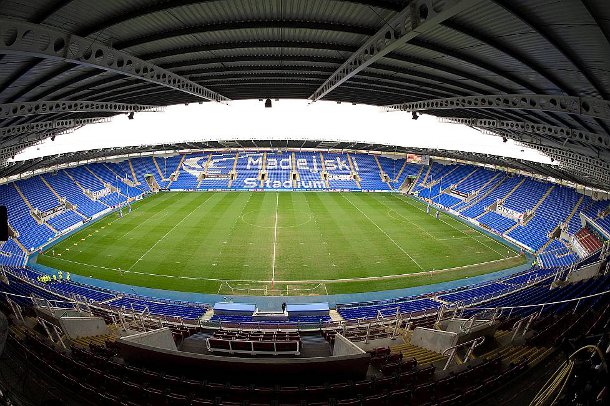Goal! How data analytics drives sport teams to victory

Manchester City and London Irish gain an edge from their data...
Sports teams are improving performances on and off the pitch by using analytics technology to get more from an ever-increasing volume of data.
With data analytics predicted to be one of the most important strategic technologies for businesses in 2011 by Gartner, organisations are looking at how they can benefit from using it, with the technology finding a particular niche in the sports world.
London Irish rugby union side and Premiership football club Manchester City have both been using data analytics for several years and intend to develop their use of the technology further.
For London Irish business development director Chris Miles, the main objective is to make the data more useful.
"The objective isn't to collect data - it's how can we manage the data we currently have. You can get paralysed by data. You can spend a huge amount of time providing more and more facts and figures, which can ultimately be meaningless if you don't make any decisions based on those facts and figures," Miles said.
London Irish uses video analysis software SportsCode as well as GPSports, which collates GPS data about players during the game from the distance run to the g-force of tackles, which can be useful for managing injuries.

London Irish rugby union club has stepped up its use of analytics with the introduction of IBM Cognos business intelligence
(Photo credit: London Irish)
The information generated then feeds into training as well as games. "Another key aspect in the system is linking training to match performance. If you talk about gut, you talk about instinct - they're all very important traits in a coach and a player but ultimately you need to be able to analyse facts," Miles said.
"You can't use analytics to replace judgement - it supports it," he added.
When Miles joined the club in April he sat down with the coaching staff and asked how they could improve the use of data. As a result the club started to use IBM Cognos business intelligence software to consolidate the data and provide summary information to identify useful trends.
There are plans to extend the use of Cognos to other parts of the business. For example, it could be used to identify customer trends such as average attendances at matches. "If there's something we can do as a club to increase those average attendances from 12,000 up to 15,000, that massively impacts our ability to invest in our business." Miles said.
Manchester City is in a slightly different situation to London Irish in that its ambitions have shifted significantly following its takeover 18 months ago by Abu Dhabi billionaire Sheikh Mansour.
The club is now aiming to challenge Europe's top teams for trophies. As a result, the use of analytics has become increasingly important, according to Gavin Fleig, head of performance analysis at Manchester City.
"What we try and do at Manchester City is open our eyes to the world of analytics and how it can try and help us improve our football performance," Fleig said. "The use of [analytics] technology is going to be vitally important [for the club's ambitions],"
Due to the club's increased spending power...
...the quality of players it has been able to recruit has increased but there's more to a player's value than a price tag.
"To find the under-valued players or the players who are going to add to your team, we need to be able to measure a performance first of all," Fleig said.
The data that can be used to analyse a player's performance and contribution to the team comes in the form of about 180 actions that can be measured during the course of a game. "Until we can collect this data it's impossible to gauge the impact of actions in games," Fleig said.
Manchester City uses analytics for player recruitment and profiling as well as for game preparation and analysis. The club uses SportsCode to collect live statistics during games along with Prozone to analyse post-match data.
The player actions that are measured include the number of completed passes in the final third of the football pitch or the amount of successful crosses put into the opponent's penalty area. "Whatever we collect has got to assist decision making," Fleig said.
The use of data analytics is aimed at making goal celebrations, such as this one against Stoke City, a more common sight
(Photo credit: Manchester City FC)
Prozone, which is used by a number of football clubs, feeds into training plans, highlighting areas in which the team is particularly dangerous - or vulnerable .
The information differs significantly between teams as they will all have players who respond in different ways to certain tactics. "What's right for some teams isn't necessarily right for our team," Fleig said.
Analytics also provides information that might not have appeared important during a game but which later becomes apparent as being the reason why the team performed as it did. "It's easy to miss something that we're not looking for," Fleig said.
So serious is Manchester City about analytics that members of the performance analysis team attend the annual Sloan Sports Analytics conference at the Massachusetts Institute of Technology to make sure they're aware of the latest techniques to improve team performance.
However, like Miles, Fleig stressed that data analytics isn't the be-all and end-all. "No one's ever going to say that data and stats will override a decision because the intuition and the feeling that coaches get is often the most powerful thing - that's what makes them the experts in that role. But the information we can provide as an analytics department can support that, can confirm decisions and assist in the decision-making process."
"There is still a large amount of subjectivity but that will change in the future," he added.